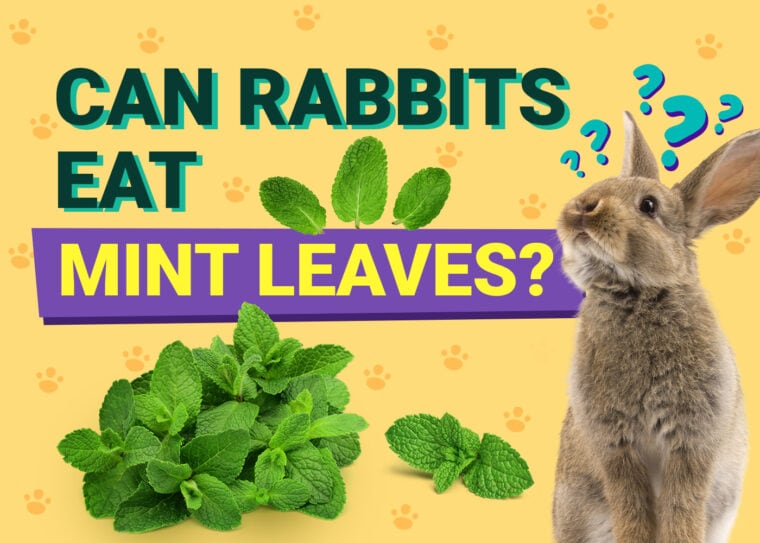
Click to Skip Ahead
Rabbits have specific dietary requirements, and inappropriate food choices can wreak havoc on their digestive system. So, are mint leaves good or bad for your little bunny? Here’s what we know so far.
According to the American Society for the Prevention of Cruelty to Animals (ASPCA), mint (Mentha sp.) is toxic to dogs, cats, and horses. But there is no scientific evidence of its toxicity to rabbits. Moreover, the House Rabbit Society—a reputable international non-profit animal welfare organization—includes mint and peppermint leaves in its list of allowed veggies for rabbits.
However, that doesn’t mean it’s okay to offer your bunny multiple mint leaves every day! For one thing, it can upset the delicate balance of their gastrointestinal flora. They may also not even enjoy the taste, so you should monitor their reaction closely if you decide to introduce this plant into their diet.
If you’re still unsure whether to offer mint leaves to your long-eared companion, read on as we explore safety facts about this fragrant herb and answer frequently asked questions about what rabbits need in their diet to thrive.
The 3 Safety Facts About Mint Leaves & Rabbits
Mint leaves are generally considered safe for rabbits to consume—in moderation. That said, there are three important things to keep in mind before topping all your rabbit’s meals with this aromatic herb.
1. Rabbits have sensitive digestive systems.
Their unique gastrointestinal tracts require a high-fiber, low-carb diet to help the bacteria in their gut do what they do best: ferment food. But if you introduce new foods too quickly or feed them an inappropriate diet, your rabbit’s normal digestive flora will be disrupted, enabling gas and toxin-producing bacteria to grow. This can lead to serious gastrointestinal issues and in the worst case, death.
2. There is limited information on the effect of mint leaves on the digestive system of rabbits.
The House Rabbit Society indeed includes it on its list of rabbit-safe vegetables, and neither the ASPCA nor the Pet Poison Helpline identifies mint as toxic to rabbits. That said, it’s best to err on the side of caution and limit the number of mint leaves that you give your bunny.
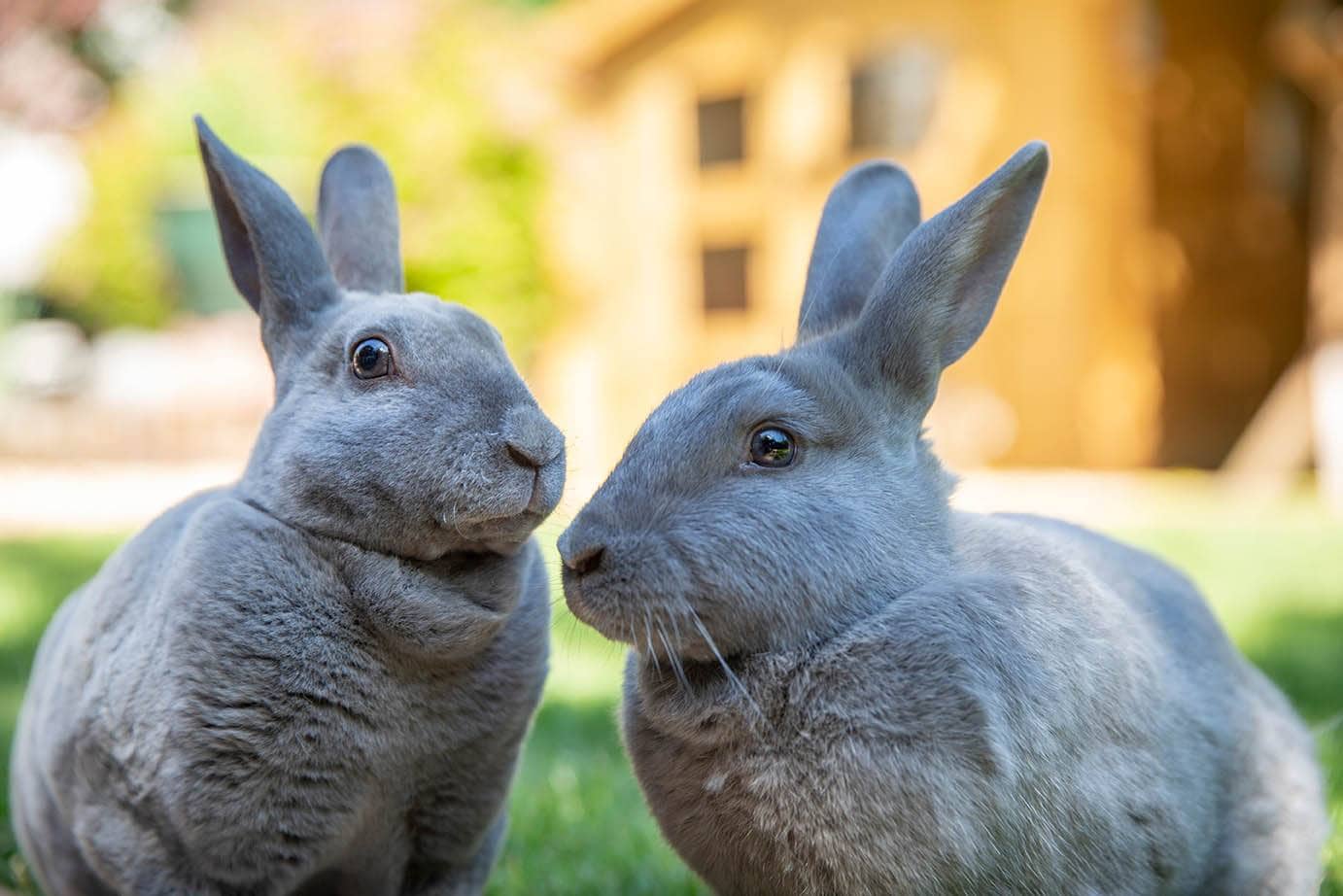
3. There is not much nutritional value in mint leaves.
A tablespoon of fresh mint leaves contains only tiny traces of fiber, a small amount of vitamins A and C, and no carbohydrates, fats, or proteins. Therefore, you should consider offering your rabbit other types of herbs and veggies if your goal is to supplement their diet with more nutrients, vitamins, and minerals. Indeed, there are plenty of other herbs and vegetable options that you can safely feed your little fur ball.
How to Give Mint Leaves to Your Rabbit
If you do decide to give mint leaves to your rabbit, be sure to take the following steps to avoid upsetting their delicate digestive system:
Warning: Rabbits are incredibly sensitive to dietary alterations, and a sudden change can lead to potentially serious health issues. The introduction of any new foods should be done gradually and under supervision, preferably after consulting your veterinarian!
FAQ
What Is the Primary Food for Rabbits?
High-quality grass hay, such as timothy and orchard, should make up the bulk of a rabbit’s diet. Grass hay is rich in fiber, which is essential for a rabbit’s digestive and dental health. However, don’t give alfalfa hay to adult rabbits, as its high calcium content can cause bladder stones.
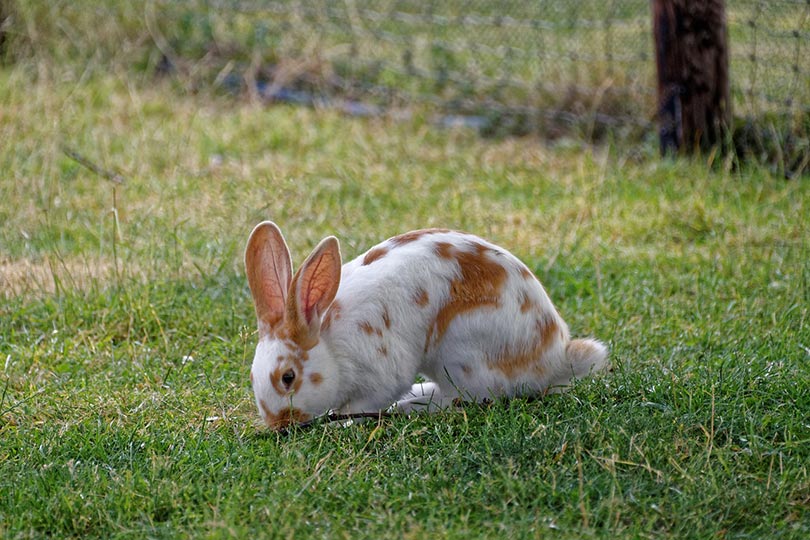
Can Rabbits Eat Vegetables?
Yes, rabbits can and should eat a variety of fresh vegetables daily. Dark leafy greens like romaine lettuce, bok choy, watercress, basil, broccoli greens, and cilantro are all safe and nutritious options.
Are Carrots Good for Rabbits?
Contrary to popular belief, carrots are not ideal veggies to feed your rabbit. They contain a large amount of carbohydrates, which can disrupt your companion’s fragile gastrointestinal bacterial flora.
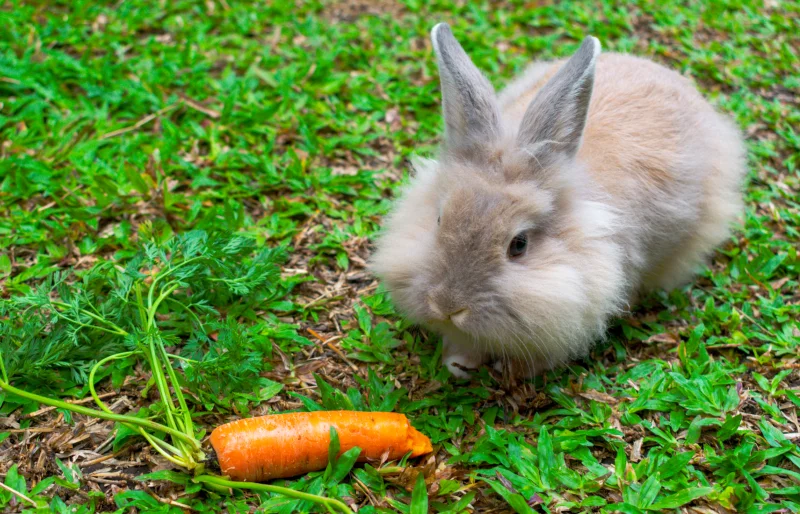
Should Rabbits Eat Fruits?
Fruits should not be offered in large quantities due to their high sugar and carbohydrate content. Rabbits should only have about 1 to 2 tablespoons a day and no more! Choose fiber-rich fruits like apple slices, pears, or berries, and be sure to remove any seeds, pits, or stems before offering them to your rabbit.
Can Rabbits Eat Table Scraps?
If table scraps include foods high in sugar, salt, or fat, do not give them to your rabbit. Certain veggies, fresh herbs, and fruits may be acceptable, though, provided that they are washed thoroughly beforehand and cut into small pieces.
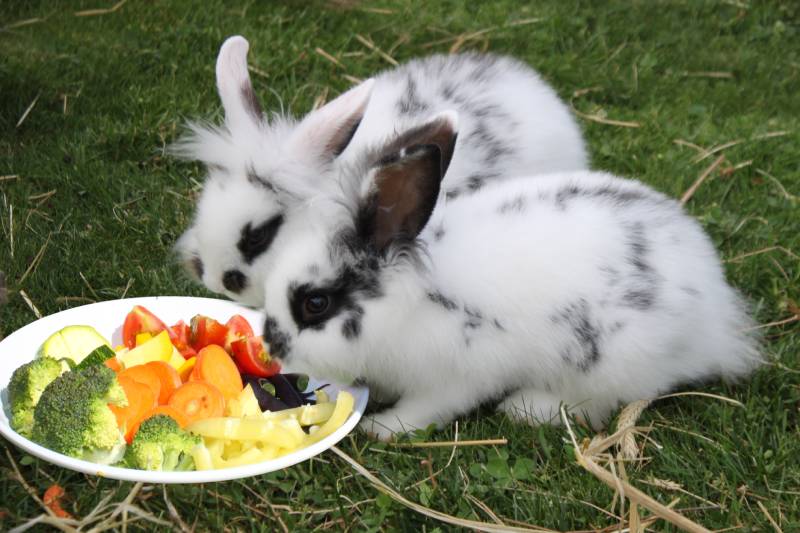
What Should You Never Feed to Rabbits?
Bottom Line
Mint leaves are not considered toxic to rabbits and can be given to them in moderation. But know that these lagomorphs don’t have the same robust digestive system as many other mammals, so you must prioritize grass hay and fresh veggies as the main components of their diet.
Whatever new food you want to introduce them to, it’s essential to take it easy and monitor their health carefully. After all, a healthy bunny is a happy bunny!
Read Also:
- Can Rabbits Eat Parsley? Safety Facts & FAQ
- Can Rabbits Eat Spinach? Safety Tips & FAQ
- Can Rabbits Eat Kale? Nutrition Facts & FAQ
- Can Rabbits Eat Cabbage? Nutritional Facts & FAQ










